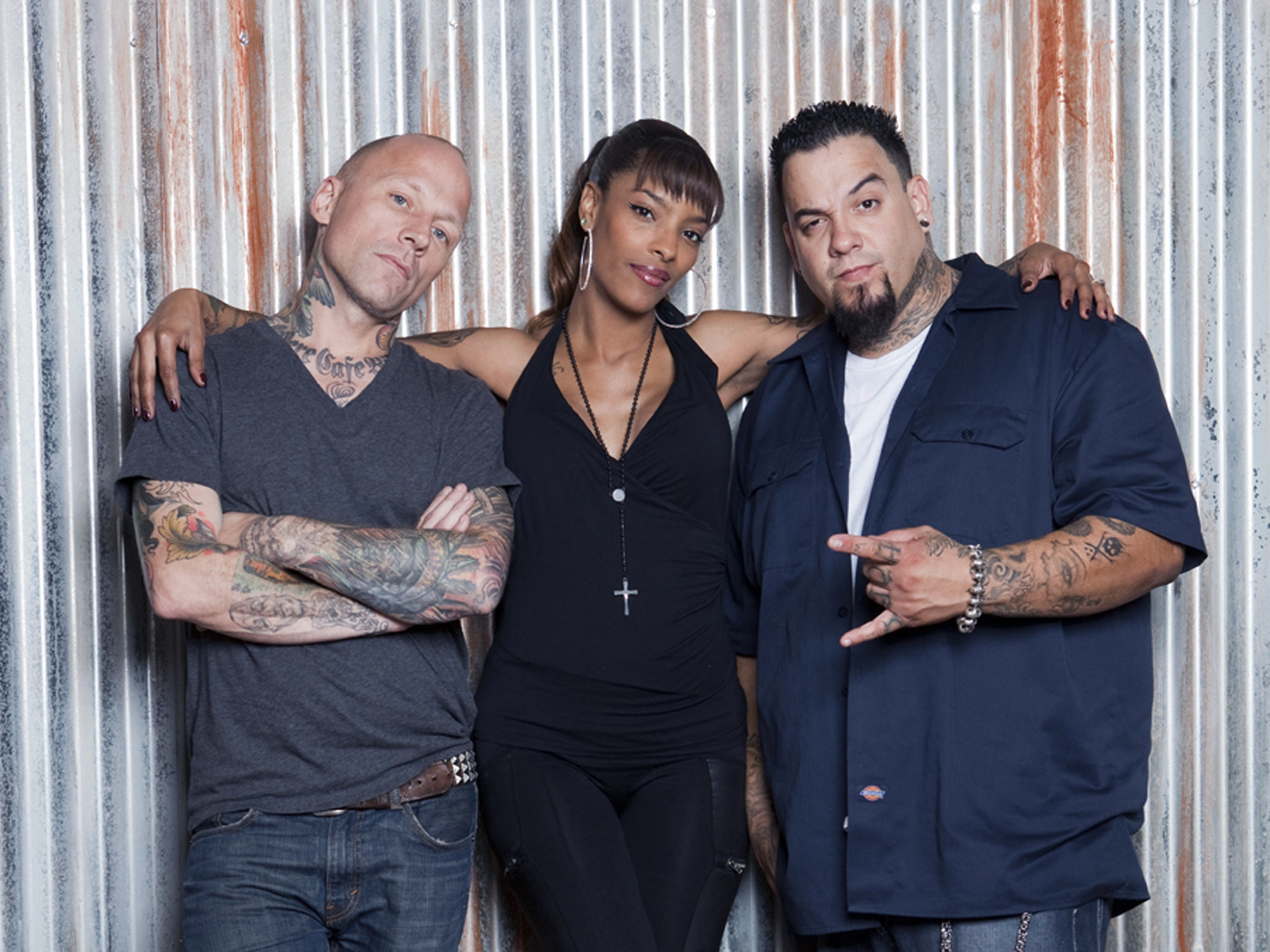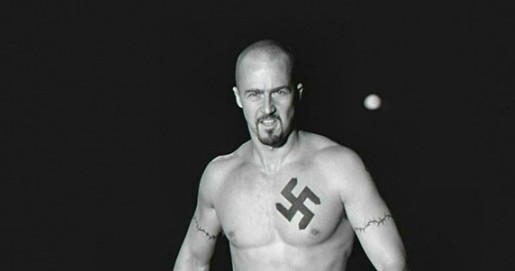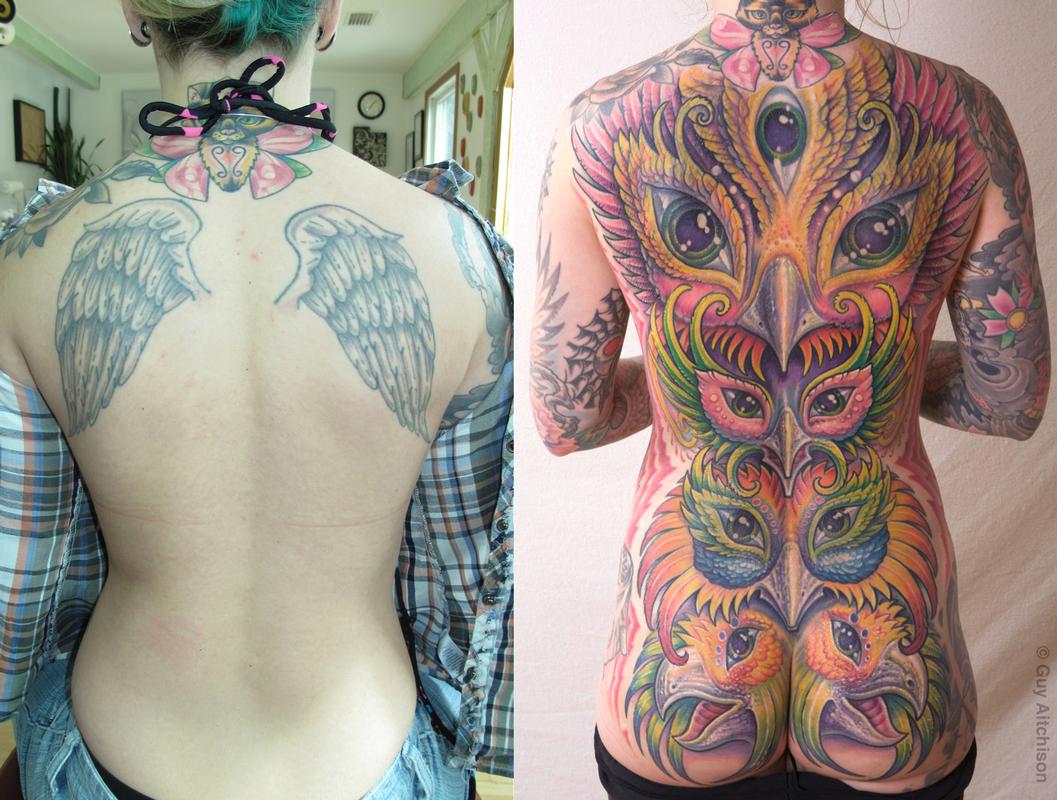There is a terrifically cheesy TV show on TV from time to time: Tattoo Nightmares. One night last week I was home late from work, couldn't think of anything better to watch, and was astonished to be provoked into a long and complicated train of thought.
So the show itself is not very complicated.
It centers around a shop where these three tattoo artists specialise in covering up bad tattoos. In the process - and in the spaces between torturously placed ad breaks - the stories of the acquisitions of the tattoos emerge.

But the hypnotic thing about this show is the terrible stories that go with the bad tattoos. Every one of these people seems to have been pressured or manipulated into getting a tattoo by 'friends' or their too-powerful partner; often while drunk or in love or very late at night; and the person who did the bad ink in the first place was also manipulating them, and/or drunk or stoned. Over and over again. And after years, sometimes decades, they find their way into this specialist cover-up studio on Miami desperate to get their tattoo fixed and their life or sense of identity back. For the intervening time, these people have been carrying around a permanent mark of one particular time their 'friend' tricked them, or forced them, into getting a tattoo. And they are so grateful to the artist who provides them with their own mark in the place of the mark where someone else marked ownership over them.
I don't know very much about tattoos. Good ones can be spectacular. There is one woman whose son is in the same group as mine at kinder, and she has amazing, brightly coloured art right down one arm from shoulder to wrist. There are shops around the place, and machines, and ink colours, and different types of designs in different contexts. I would not know how to find a good place to get a tattoo done, other than going up to someone with a good one and asking them which artist they used.
But there are terrible stories too. The Nazis were notorious for using tattoos to barcode Jews, Gypsies, gays and spies. Some Nazis collected the skins of tattooed people from the concentration camps and used them for 'study', as well as lampshades and book covers. They targeted Gypsies, because the Romani were specialists in skin ink and marked things from the places they travelled - and Jewish law does not allow tattoos. Also disturbing is that if you search "nazi tattoo collection", Google provides page after page of bald and grouchy looking young men with swastika ink, clearly modern Nazis who indicate their membership to a larger paramilitary group by getting that ink.


There is an artist who had six pigs tattooed in some detail (they were under general anaesthetic at the time to maintain animal welfare ) and later had them stuffed and sold to the MONA in Tasmania. Every time I try to think too much about this, my mind slides away quickly. I wonder if you have the same reaction.


People with tattoos can't donate blood to the blood bank, because of the risk of as-yet-unidentified pathogens transmitted by needle. After the Tattoo Nightmares stories of home tattooing, I am starting to think that this is quite a reasonable restriction.
But my big question about tattoos is - what would be worth getting?
At best, anything meaningful enough to get tattooed at one point in a lifetime may be much better forgotten later, or just maybe time changes, memories fade, and it's not important anymore. At worst, for folks like Tattoo Nightmares' clients and those swastika-carrying guys mentioned earlier, when life does move on, you can't forget bad decisions, humiliation, belonging to a group which you would never want to admit to, let alone continue to remember.
The nice thing is that tattoos can be changed, although unlike the way your memory re-writes itself to make you the hero, it must be done by conscious choice. Maybe that is the fascination of Tattoo Nightmares' work.
One woman I know had a large and very detailed puma on her shoulder blade done when she was younger and in . A few years ago she decided the puma was too aggressive and she wanted it changed to be more middle-aged, so she went back to the same artist and had it made sleeker and fatter, like stretching in the sun rather than attacking. It is beautiful - and very specific to her.
This is not a photo of it, but this is also a dramatic and beautiful coverup

Some of the clients coming in to Tattoo Nightmares have symbols or names from sporting clubs, or old love affairs, in one case a man bought his wife a breast augmentation and she wanted him to tattoo the new cleavage on his arm, well surprise surprise they got divorced, and his new wife - and now his children from his new wife, and the other parents at the childcare centre - would really prefer for the giant breasts to be covered over.
OK I admit it. That one was funny.
He got a fishing scene instead (yes a river, a fisherman and a trout on the line)!
The cover-up was even funnier.
But happily for him, it is congruent with his life stage. It will probably remain relevant to him throughout his retirement.
After looking at lots of tattoo pictures online for the last 45 minutes, I think the best way to get a tattoo is to go big, with a well-reputed artist, and preferably in a place you can't see. Go by yourself when you are sober. Take two paracetamol first. Pay good money. Go for lots of colours, or detailed black work. Don't go half-baked: really good tattoos seem to be all-out or not worth doing.

